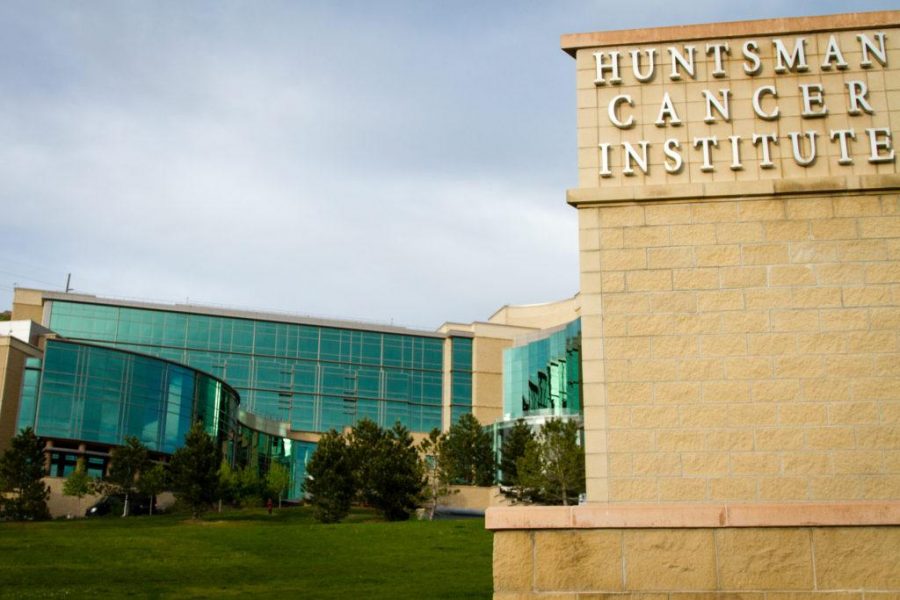Four of the most prestigious cancer health organizations in the United States released a joint statement urging significant changes to cancer research, especially for studies that focus on cancer health disparities.
The statement, which comes after more than a year of deliberations, was written by the American Association for Cancer Research, the American Cancer Society, the American Society of Clinical Oncology and the National Cancer Institute. It presented strategies “to ensure that cancer research benefits all populations and patients regardless of race, ethnicity, age, gender identity, sexual orientation, socioeconomic status or the communities in which they live.”
University of Utah Health Associate Vice President for Health Equity and Inclusion and Huntsman Cancer Institute (HCI) Director for Cancer Health Equity Ana Maria Lopez called the statement “transformative.”
According to the National Cancer Institute, cancer health disparities are “adverse differences in cancer incidence, cancer prevalence, cancer mortality, cancer survivorship and burden of cancer or related health conditions that exist among specific population groups in the United States.”
Health disparities can be linked to various categories including race, ethnicity, age, sex, socioeconomic status, religion, gender identity, sexual orientation, education, literacy, insurance level and Medicaid access. They can also be linked to community factors such as the differences between a rural and urban environment, states or regions lived in, neighborhood safety, social cohesion, availability of healthy foods and residential segregation. The statement said, “All of these factors can intersect to generate larger disparities.”
For example, the American Cancer Society says that people of lower socioeconomic status have a much higher death rate than those of higher socioeconomic status. According to the U.S. Department of Health and Human Services, African-Americans experience the highest mortality rate of all racial and ethnic groups for all cancers combined. The National Cancer Institute says that cancer rates are declining at a slower rate for American Indians than for other groups. They also report that Asian-Americans and Pacific Islanders are twice as likely to die from liver or stomach cancer as compared to whites.
Some of these disparities are worsening, and experts aren’t sure why.
Currently, cancer disparities are well-researched along lines of race and ethnicity, but this is not the case for other patient characteristics. The letter points out that most studies don’t consider community-level factors, and that uniform data collection methods for sexual orientation and gender identity have not yet been developed.
The organizations made specific recommendations for advancing knowledge in the field. They believe that researchers in all health care settings should collect every facet of information on every study subject or patient, like race, ethnicity, sexual orientation and gender identity.
Since some of the information may potentially be sensitive, they write that “providers, patients, and the public should be educated regarding the rationale for and importance of collecting sociodemographic data … Standard guidelines to facilitate collection and to mitigate patient or participant concerns should be offered.”
They also want more studies to be run that collaborate with both experts in other fields and members of the underserved populations themselves.
“Clinical trials are the most important and reliable means available to provide scientific evidence for effective care and management of patients with cancer and individuals at risk for cancer,” the statement said. “Because the putative goal of clinical trials is to provide evidence that is both valid and generalizable, future trials must include research questions that consider the multifactorial and multilevel components that characterize populations with the greatest cancer burden.”
The recommendations include the elimination of costs for taking part in clinical trials, so more can participate. Specifically, they recommend that Medicaid in all 50 states should cover the “routine care costs” of clinical trials and that funding mechanisms are established for research that focuses exclusively on cancer health disparities.
The U’s Lopez says a major focus at HCI is cancer health disparities based on factors like distance from the facilities or whether a patient lives in rural or urban areas. This is because the institute and the associated cancer hospital have a service area of nearly 17% of the continental U.S. landmass, covering urban, rural, and frontier lands and containing lands of seven American Indian tribes.
Lopez said HCI’s researchers have been concerned with how to address gender identity and sexual orientation in their work. Creation of a uniform set of guidelines, as the joint statement recommends, would help them identify if there are disparities along those lines.
She said she wants people to understand just how important this joint statement is. It’s significant for these four prominent organizations to invest so much time developing concrete ways to learn more about health disparities in cancer. Lopez feels it will have a large impact on the field of research.
As they identify more disparities between populations and learn what may cause them, the hope is that researchers can eventually learn how to close the gap and prevent cancer across the board.
The statement read, “Given the looming crisis in cancer incidence and mortality disparities that affects minorities and the medically underserved, it is our collective hope that in this period of cancer research when significant breakthroughs are being discovered, there will be opportunities to apply this new knowledge to all populations, and thus eliminate cancer health disparities for current and future generations.”
@EliseAbril



